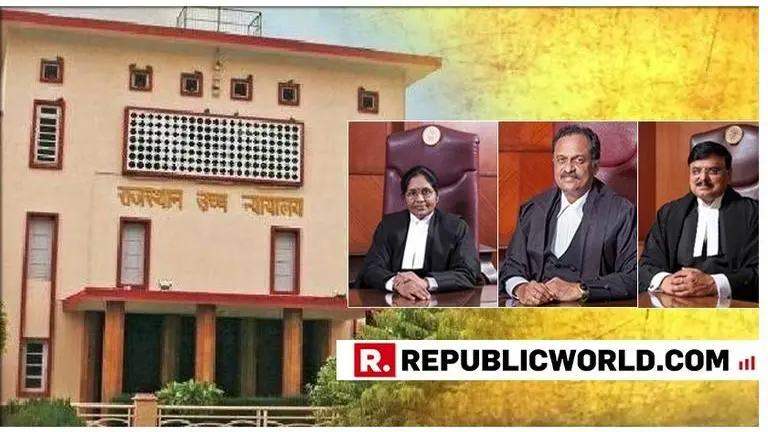Updated 15 July 2019 at 16:28 IST
Now, no need to say 'My Lord' or 'Your Lordships' while addressing Rajasthan High Court judges; Here's why
In a bid to uphold equality in the court of law, the Rajasthan High Court, on Monday, has declared that it has decided to refrain from referring to judges during court sessions as 'My Lord' or 'Your Lordship', according to a notice released by the court.
- India News
- 0 min read

In a bid to uphold equality in the court of law, the Rajasthan High Court, on Monday, has declared the desisting of referring to judges during court sessions as 'My Lord' or 'Your Lordship', according to a notice released by the court.
The notice states that this decision was unanimously passed by the full court in a meeting held on Sunday, explaining that this move was aimed at 'honouring the mandate of equality enshrined in the Constitution of India'. All counsels and those appearing in front of the judges have been requested from addressing judges as 'My Lord' or 'Your Lordship', as per the notice.
Here is the notice released by Rajasthan High Court:
Right to Equality
Article 14 ( Equality before law) of the Constitution states:
Advertisement
"The State shall not deny to any person equality before the law or the equal protection of the laws within the territory of India Prohibition of discrimination on grounds of religion, race, caste, sex or place of birth."
Right to equality is one of the fundamental right provided by Indian Law to all its citizens and non-citizens too. As explained by Legal Services India, this right guarantees to every person the right to equality before the law and equal protection of the law. Every person who lives within the territory of India, has the equal right before the law irrespective of one's religion, race, caste, sex, and place of birth.
Advertisement
Previous cases against usage of 'My Lord'
In this particular case, the Rajasthan High Court is presumably aiming at holding the judges at the same level of the counsels and those seeking justice in their austere chambers.
Previously, in 2009 such a similar observation was made by Justice Chandru of Madras High Court in 2009 where he asked lawyers to not use the above-mentioned terms. Similarly, in 2006, the Bar Council of India had passed a resolution prohibiting the usage of such terms stating such usage was a relic of the colonial past.
Published By : Suchitra Karthikeyan
Published On: 15 July 2019 at 15:46 IST

